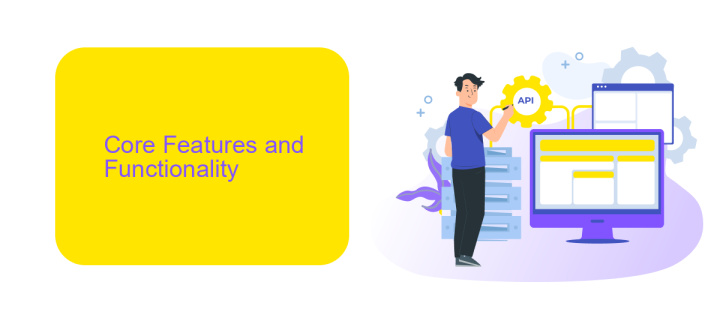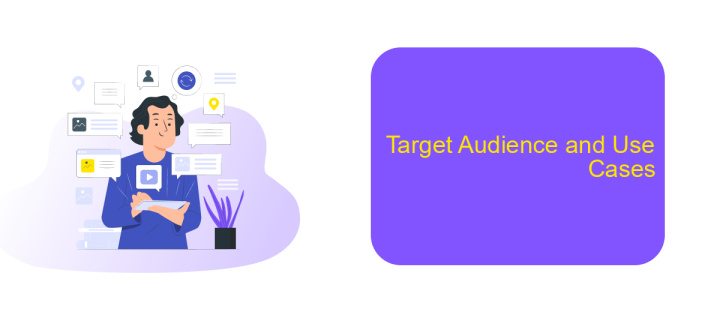What is Appian Application
Appian is a leading low-code automation platform that enables businesses to rapidly develop powerful applications. By combining intelligent automation, case management, and process management, Appian empowers organizations to streamline operations and drive digital transformation. This article delves into the core features, benefits, and use cases of Appian, illustrating how it can revolutionize the way enterprises approach application development.
Introduction: Appian Defined
Appian is a leading enterprise application platform that enables organizations to build powerful business applications quickly and efficiently. By leveraging a low-code development approach, Appian allows users to create applications with minimal hand-coding, reducing development time and cost.
- Low-Code Development: Simplifies application creation with drag-and-drop functionality.
- Process Automation: Streamlines business processes through automated workflows.
- Data Integration: Seamlessly integrates with various data sources and systems.
- Scalability: Supports enterprise-level applications with ease.
One of the key features of Appian is its ability to integrate with other services and platforms. For instance, ApiX-Drive can be utilized to set up and manage integrations effortlessly, allowing businesses to connect Appian with a multitude of applications and services. This enhances the overall functionality and interoperability of the applications built on Appian, making it a versatile and powerful tool for modern enterprises.
Core Features and Functionality

Appian is renowned for its robust set of core features and functionalities that streamline business processes and enhance productivity. One of its most notable features is its low-code development environment, which allows users to design applications with minimal coding effort. This feature significantly reduces the time and resources required for application development, making it accessible even to those with limited technical expertise. Additionally, Appian offers powerful process automation capabilities, enabling businesses to automate complex workflows and ensure seamless operations.
Another key functionality of Appian is its ability to integrate with various third-party services and applications, facilitating a unified workflow. For instance, with services like ApiX-Drive, users can effortlessly set up integrations between Appian and other software, ensuring data consistency and operational efficiency. Appian's built-in analytics tools provide real-time insights, empowering businesses to make data-driven decisions. Moreover, its mobile compatibility ensures that users can access and manage their applications from anywhere, at any time, further enhancing flexibility and responsiveness.
Benefits of Using Appian

Appian is a powerful low-code platform designed to streamline business processes and enhance productivity. One of the primary benefits of using Appian is its ability to accelerate application development, allowing businesses to deploy solutions faster and more efficiently. This not only reduces time-to-market but also enables organizations to respond swiftly to changing market demands.
- Rapid Development: Appian's low-code environment significantly cuts down development time, making it easier to create applications quickly.
- Integration Capabilities: With services like ApiX-Drive, Appian can seamlessly integrate with various third-party applications, ensuring smooth data flow and interoperability.
- Scalability: Appian's robust architecture supports scalable solutions, accommodating growth and increasing business demands.
- User-Friendly Interface: The platform offers an intuitive interface, making it accessible for both technical and non-technical users.
- Enhanced Collaboration: Appian fosters better collaboration among teams by providing tools for real-time communication and project management.
In conclusion, Appian offers numerous benefits that help businesses optimize their operations and stay competitive. From rapid development to seamless integrations with services like ApiX-Drive, Appian equips organizations with the tools they need to succeed in a dynamic market environment.
Target Audience and Use Cases

The Appian application is designed for business professionals and IT developers seeking to streamline their workflow and enhance process automation. This platform is particularly beneficial for organizations aiming to improve operational efficiency through low-code development.
Companies from various industries, including finance, healthcare, and manufacturing, can leverage Appian to achieve their digital transformation goals. By providing a user-friendly interface and powerful integration capabilities, Appian empowers teams to build and deploy applications quickly.
- Business Analysts: Design and optimize business processes with minimal coding.
- IT Developers: Create robust applications with advanced functionalities.
- Project Managers: Monitor project progress and ensure timely delivery.
- Operations Teams: Automate repetitive tasks to increase productivity.
For seamless integration with other software solutions, Appian users can utilize ApiX-Drive, a service that simplifies the process of connecting various applications. This ensures that data flows smoothly between systems, enhancing the overall efficiency of the Appian application.
Implementation Considerations and Best Practices
When implementing an Appian application, it is crucial to start with a thorough planning phase. This includes understanding the business requirements, defining the scope, and identifying key stakeholders. Ensure that the application architecture is designed to be scalable and modular, allowing for future enhancements without significant rework. Proper documentation and adherence to coding standards are essential to maintain consistency and facilitate easier troubleshooting and updates.
Another critical consideration is integration with other systems. Utilize reliable services like ApiX-Drive to streamline the integration process, ensuring seamless data flow between different platforms. Regularly conduct performance testing to identify and address any bottlenecks. Additionally, implement robust security measures to protect sensitive data and comply with industry regulations. Finally, provide comprehensive training for end-users and establish a support mechanism to handle any issues post-deployment effectively.
FAQ
What is Appian Application?
How does Appian help in process automation?
Can Appian integrate with other systems?
Is Appian suitable for non-technical users?
What are some common use cases for Appian?
Routine tasks take a lot of time from employees? Do they burn out, do not have enough working day for the main duties and important things? Do you understand that the only way out of this situation in modern realities is automation? Try Apix-Drive for free and make sure that the online connector in 5 minutes of setting up integration will remove a significant part of the routine from your life and free up time for you and your employees.

